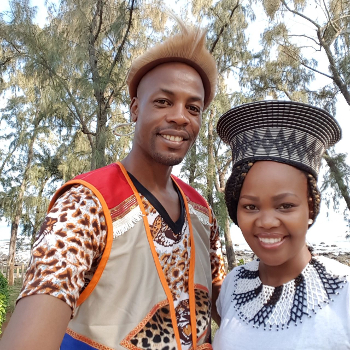News & Events
Future legal eagles represent Unisa at African competition

Q & A with Zodwa and Sindiso
Q: How were you selected to represent Unisa at this competition?
A: All inter-regional moot competitors are given an opportunity to interview for the African Human Rights Moot Court Competition. A hypothetical case is sent out to all the interested participants a week before the interview date. The participants are required to draft heads of arguments for both the Applicant and Respondent. An interesting dynamic at this stage is the change in the legal instruments, from using the Constitution of the Republic of South Africa students learn to use international instruments such as the African Charter on Human and Peoples’ Rights. After gruelling interview sessions the two best students are selected. The mentors at this stage look for students with the best drafting and oral skills as well as students who are nimble on their feet and show a level of ingenuity in addressing their arguments.
Q: How did the preparation for the competition go?
A: Preparations entailed a lot of research, drafting and studying all relevant legislations and case law subject to human rights as passed by the African Court and Commission. We were assisted by our faculty representatives namely Mr Paul Anthonie, Ms Sibongile Baloyi, Ms Kedibone Chembe, Mr Justice Khoza, Dr Mmusinyane and a few of our fellow students who contributed in the compilation of our files.
Q: Do oratory skills really matter or will research alone get you through the competition?
A: The basis and focal point of competing is practising and sharpening one’s litigation skills, thus making your oral skills (or abilities) very important as your articulation of the research you have conducted in a form of oral presentation to the presiding officers is most important.
Q: How important was team effort during preparations? Did you have conflicts? How did you resolve them?
A: Working as team is very important as it encompasses sacrifice, commitment and effective communication. These are all influences that will affect your team’s ability to achieve its set goals. Due to us being fortunate enough to have previously worked together, we did not encounter any conflict because we had a common goal to achieve and understood our roles during preparation of the competition. We allocated tasks based on our strengths and complemented each other throughout the competition.
Q: What were your impressions of the African Human Rights Moot Court Competition?
A: We anticipated that the competition would be challenging as well as rewarding, and that passion and dedication would play a vital role in achieving the desired goals. We are pleased to have made the acquaintance of fellow students from other African countries and to have engaged with inspirational leaders. The invaluable experience acquired from this journey will be among our favourite memories.
Q: What experience did you gain?
We acquired research and legal drafting skills as and have sharpened our oral presentation abilities will no doubt assist with public speaking.
Q: Would you recommend moot courts to other students? Why?
A: Certainly, it allows you to appreciate the principle of applying legal theory into practice by merging your academically acquired skills over the years into an instrument that will assist you in advancing your career. It provides you with the opportunity to better equip yourself as a litigator whilst you are a student as well as practice the required skills you will need as a legal practitioner.
It will also resolve any doubts that you may have with regards to becoming a lawyer, because you will either sink or swim to greater achievements or a new career path.
* Submitted by Zodwa Msane and Sindiso Sibanda
Publish date: 2018/03/16
